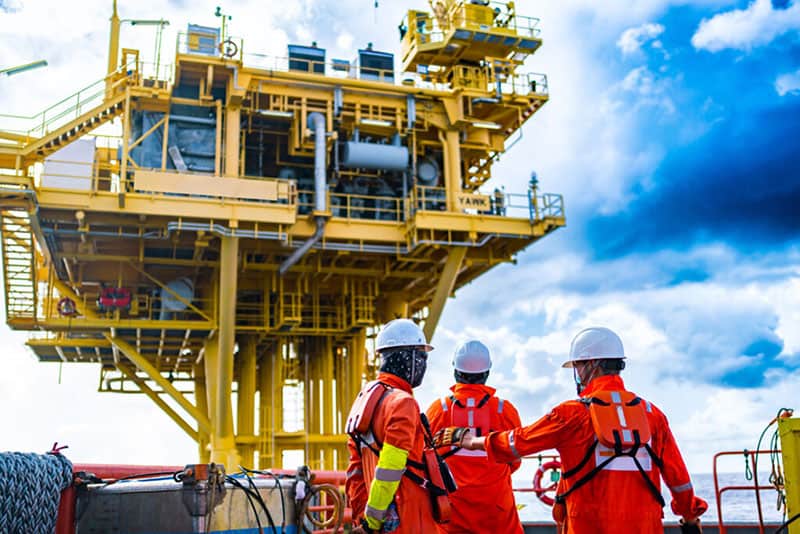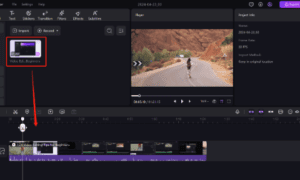Oil rigs are inherently dangerous environments. Workers face numerous risks daily, from heavy machinery accidents to exposure to toxic substances. These environments demand rigorous safety standards and well-trained personnel. Yet, accidents still occur due to negligence, equipment failure, or insufficient training. When accidents happen, the consequences are often severe, leaving workers with life-altering injuries.
Common injuries on oil rigs include burns, fractures, and traumatic brain injuries, among others. In more serious cases, victims may suffer spinal cord damage or even lose their lives. Such incidents devastate the workers and deeply affect their families, as they face emotional and financial burdens.
Determining responsibility becomes critical when negligence plays a role in an oil rig accident. Liability can involve multiple parties, including employers, contractors, or equipment manufacturers. Understanding who is at fault can help victims begin the process of seeking the compensation they deserve for their injuries.
Legal Steps to Pursue Compensation After an Oil Rig Accident
The first step in seeking compensation after an oil rig accident is documenting the incident. Workers should report the accident to their employer immediately and have them file an official report. Collecting evidence, such as photographs of the accident site and witness statements, can be invaluable for building a case. This documentation can provide the foundation for pursuing a claim.
Victims often have multiple legal options. In some cases, they can file a workers’ compensation claim, which may cover medical expenses, lost wages, and disability benefits. However, workers’ compensation may not always fully address the extent of the damages. If a third party, such as an equipment manufacturer, is responsible for the accident, victims may also file a personal injury lawsuit.
Navigating the legal process can be complex. Experienced legal guidance is essential to understanding the best approach to obtaining compensation. For example, a spinal cord injury lawyer in Corpus Christi can provide the specialized expertise needed to address severe injuries and maximize compensation.
Key Factors That Influence Oil Rig Accident Compensation
Several factors can influence the amount of compensation a victim may receive after an oil rig accident. One major consideration is the severity of the injury. Serious injuries, such as spinal cord damage or traumatic brain injuries, often result in higher compensation amounts due to the extensive medical care and long-term rehabilitation required.
Another critical factor is the degree of negligence involved in the accident. If an employer fails to adhere to safety regulations or provide adequate training, this could lead to punitive and compensatory damages. Similarly, defective equipment or machinery could shift liability to the manufacturer, potentially increasing the settlement or award.
Finally, the impact of the injury on the victim’s life plays a significant role in determining compensation. When calculating impact, legal teams consider not only immediate medical expenses but also lost earning capacity, ongoing care needs, and emotional trauma. Each of these factors must be carefully evaluated to ensure that victims receive fair and adequate compensation.
How Specialized Lawyers Can Help
When dealing with an oil rig accident, having legal representation familiar with the unique challenges of these cases is crucial. An oil rig accident lawyer understands the complexities of maritime and personal injury laws, both of which may apply to these incidents. This expertise allows them to navigate the legal landscape effectively, ensuring that victims’ rights are protected.
Specialized lawyers can handle negotiations with insurance companies and opposing parties. They gather evidence, interview witnesses, and consult with experts to strengthen the victim’s case. Their goal is to achieve a settlement that reflects the full extent of the damages or, if necessary, take the case to court for a fair resolution.
For those who have suffered severe injuries, such as a spinal cord injury, hiring an attorney with specific experience in these cases can make a significant difference. For instance, a spinal cord injury lawyer in Corpus Christi can address the unique medical and legal challenges associated with such injuries. An understanding of local laws and court systems makes these lawyers effective advocates.
Financial and Emotional Challenges After an Oil Rig Accident
Oil rig accidents often leave victims facing significant financial and emotional challenges. The cost of medical care alone can be overwhelming, especially for severe injuries requiring surgeries, physical therapy, and long-term care. Lost wages add another layer of financial strain, particularly if the injury prevents the victim from returning to work.
Beyond the financial impact, the emotional toll of an oil rig accident can be equally devastating. Victims may experience anxiety, depression, and feelings of helplessness as they adapt to their new circumstances. Family members often share this emotional burden as they provide care and support for their loved ones.
Recognizing and addressing these challenges is a critical part of the recovery process. Compensation can help alleviate financial pressures, allowing victims to focus on their physical and emotional healing. It can also provide resources for counseling and support services to help families cope.
Building a Strong Case for Compensation
Building a strong case for compensation requires meticulous preparation. Every detail matters, from medical records and accident reports to expert testimony and financial projections. A well-documented case establishes the extent of the victim’s injuries and highlights the negligence or wrongdoing that caused the accident.
Expert testimony can play a crucial role in these cases. Medical professionals can explain the severity of the injury and its long-term implications, while safety experts can identify violations or failures that contributed to the accident. This evidence helps create a compelling argument for why the victim deserves full compensation.
A comprehensive approach ensures that no aspect of the case is overlooked. Victims should work closely with their attorney to gather all relevant information and build a case that fully represents their losses. This collaboration can significantly improve the chances of a favorable outcome.
Long-Term Implications of Oil Rig Accidents
The aftermath of an oil rig accident often extends far beyond the initial recovery period. Many victims face lifelong challenges, particularly if the injury results in permanent disability. Spinal cord injuries, for example, may require ongoing medical care and adaptive equipment, such as wheelchairs or home modifications.
The financial impact of these long-term needs can be staggering. Compensation must account for future medical expenses, rehabilitation costs, and the potential loss of earning capacity. Failure to consider these factors can leave victims struggling to make ends meet in the years to come.
In addition to the financial challenges, victims often experience significant lifestyle changes. Adapting to a new way of living can be difficult, but support systems and resources can help. Compensation can provide access to these services, making it possible for victims to regain a sense of normalcy and independence.



























